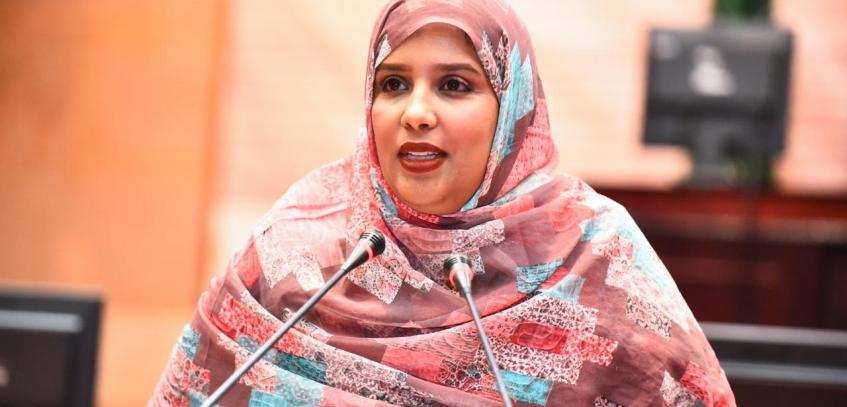The plenary session of the Pan-African Parliament convened on July 3, 2024, featured a presentation and debate on 'The Scourge of Drug and Substance Abuse as a Barrier to Inclusive, Lifelong, Quality, and Relevant Education in Africa'. Led by the Youth Caucus, this critical discussion underscored challenges impacting Africa's youth, aligning with the African Union's 2024 theme on Education, which frames the ongoing 3rd Ordinary Session of the Sixth Parliament.
The scourge of drug and substance abuse undermines efforts to provide a conducive learning environment and hampers the development of human capital critical for the continent's socio-economic growth. Recognizing this challenge, the Pan-African Parliament’s Youth Caucus has moved to take proactive measures to address the growing drug epidemic through legislative frameworks and policy advocacy. By tackling this complex issue, the Pan-African Parliament is engaging in Moonshot 6 of Agenda 2063's Second 10-Year Implementation Plan (2024-2033) focused on holistic capacity development, transforming Africa's youthful population into a productive force.
Honorable Dahi Laila, Chairperson of the Youth Caucus of the Pan-African Parliament addressed the multifaceted issue of drug trafficking and its devastating impact on African youth. She highlighted the importance of strengthening international cooperation to combat drug smuggling, improving job opportunities and education, and organizing continuous awareness-raising sessions and workshops for students. She underscored the necessity of family and community support in fighting drugs, saying, "Schools must also be an environment that encourages correct discussion on this sensitive issue and provides support to students who need it."
Honorable Laila lamented the dire consequences of drug use on the youth, "Unfortunately, the effects of drugs on young people are disastrous in Africa, where drug consumption has a negative effect on the health of young people physically and mentally, in addition to its negative effect on social and professional relations." She called for comprehensive awareness and preventive measures, advocating for healthy and positive alternatives such as sports, arts, and social activities to engage the youth.
The guest speaker at this plenary presentation, Dr. Olubosayo Akinola, Head of the Drug Control and Crime Prevention Division at the African Union Commission, delivered a comprehensive overview of illicit drug trafficking statistics and trends across member states. She provided insightful insights into the current situation, noting, "Over half a million individuals in Africa were arrested for drug-related offenses, with drugs often intended for other regions." Dr. Akinola emphasized the prevalence of cannabis as the most seized substance and highlighted the disturbing levels of youth involvement in drug use and trafficking.
Dr. Akinola elaborated on the African Union's responses to the drug crisis, including the African Union Against Drugs and Crime Program and the African Health Network Program. She emphasized the importance of prevention through education, stating, "Treatment is expensive in our member states, and prevention through education is key."
The report also featured a moving account of the innovative, yet alarming methods youth are employing to achieve a high, from inhaling concentrated ammonia to smoking dried algae and exhumed bones. Dr. Akinola implored, "Our youths are dying. We need help. If we are not able to do anything before our tenure elapses, at least we should be able to help our youths."
The discussions led by the youth parliamentarians ignited a strong response from African Parliamentarians who all lamented the drug epidemic “destroying future leaders” in their own communities and countries. The President of the Pan-African Parliament H.E. Hon. Chief Fortune Charumbira called for immediate and robust action, asserting, "This situation is deplorable. And we want to see the Pan-African Parliament take up the task as the leading institution in Africa across all countries through our youth caucus to address this problem." He further urged the dissemination of the presentations to all national parliaments and emphasized the need for collaborative efforts to secure funding and resources to combat the drug menace.
The session concluded with a call to mobilize resources for initiatives aimed at combating this challenge, urging engagement with all stakeholders involved in prevention, trafficking control, and rehabilitation and treatment efforts. African Parliamentarians also initiated the formulation of a Model Law through the Youth Caucus intended to provide comprehensive guidelines for sustained and effective measures.
Through collaborative efforts with member states and international partners, PAP endeavors to strengthen enforcement mechanisms, improve healthcare interventions, and foster community-based initiatives that support a drug-free learning environment.








